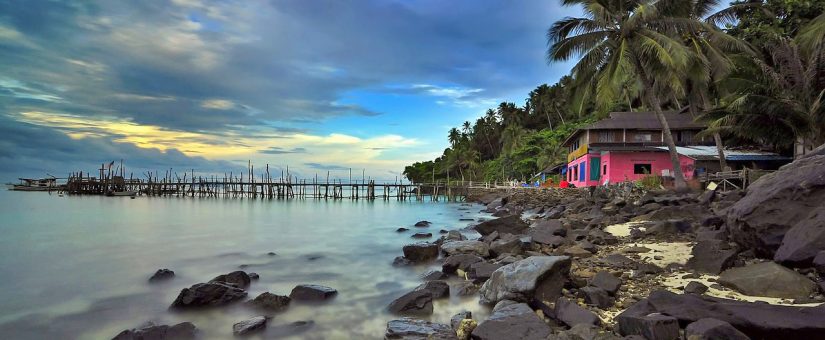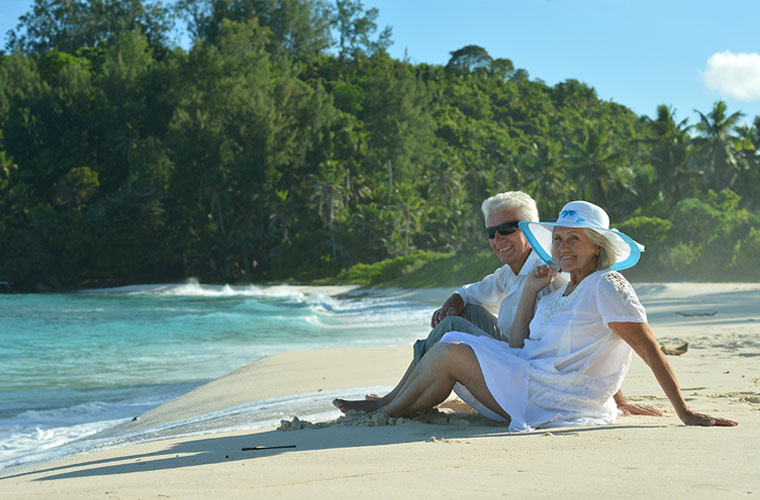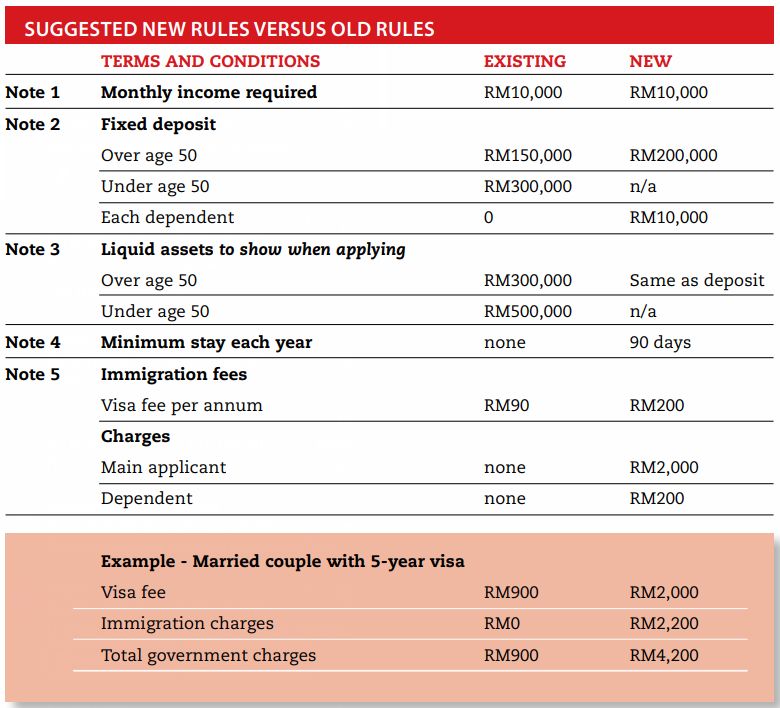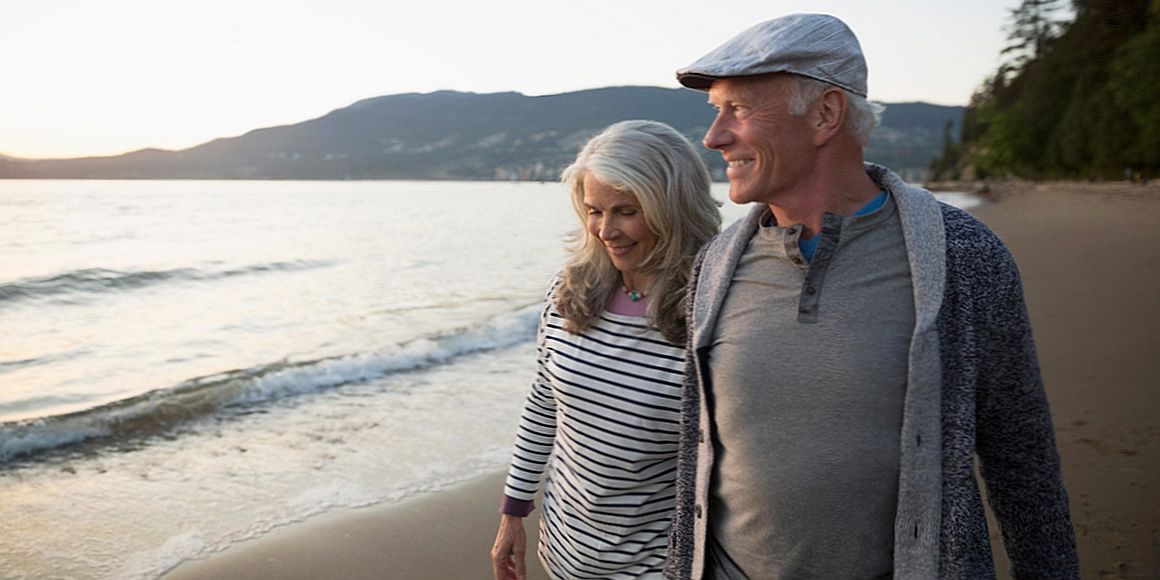Complaining about something is the easy part. Offering a better alternative requires a bit more effort. So when it comes to making the MM2H programme better for Malaysia, we not only oppose the announced changes, but offer some thoughtful suggestions for genuine improvement.
When the long-awaited changes to the suspended Malaysia My Second Home (MM2H) programme were finally announced on August 11, there was a huge outcry from virtually all quarters, denouncing the changes as too severe, too harsh, and too dramatic. Most of the complaints also noted that the revised programme would end up having the opposite effect to what was intended, driving foreign exchange and investment out of Malaysia instead of bringing it in.
It is important to understand that the existing programme works and produces substantial benefits to the country both in financial and non-financial terms. There are some weaknesses which could be addressed to ensure all visa holders contribute, but this will not be achieved by making the programme only available to the super rich. It is a reality that people who are very wealthy generally would prefer to retire to a country which is more developed. One of Malaysia’s key attractions to applicants is that the country offers good value for money.
The following are our suggestions for rules and requirements to ensure the MM2H programme continues to attract quality applicants. We believe the proposed changes will not achieve the desired result of contributing to the national recovery plan. Our recent survey revealed that out of nearly 500 people who understood the terms of the old programme and planned to apply, only 10 (or just over 2%) met the new requirements and were willing to place RM1,000,000 on a fixed deposit.

OFFER A SPECIFIC RETIREMENT-ONLY VISA
The existing visa results in different segments of applicants who make very different contributions to the economy. For example, the group that uses it as an ‘escape’ visa often contribute very little other than the fixed deposit. They keep the visa as protection against the instability in their own countries, which could potentially cause them to leave suddenly.
Our recommendation is that a separate visa specifically for retirees (one of the biggest contributors) makes the most sense. Then the conditions can be tailored to this segment. Our research, which includes data from many retirees, show that roughly 60% buy houses and 70% buy cars. On top of their capital expenditures, their average monthly spend in Malaysia is roughly RM10,000. Based on this research, we can conclude that every 1,000 visa holders will contribute over RM2 billion, assuming an average stay of 10 years.

Other long-term visas can be created for other segments, like parents of children seeking an English language education in Malaysia or those who work outside Malaysia and want to make it their base. Having a separate ‘retirement’ visa ensures the continued economic contribution of this attractive segment and deters abuse.
This segment of MM2H participants not only helps the economy through their financial contributions, but in other respects, as well. For example, MM2H can support foreign direct investment. Liveability is one of the key considerations for multinationals looking to invest. (The Economist Intelligence Unit even has a liveability section to advise corporations.)
In addition, MM2Hers living in Malaysia obviously help tourism by their own travels, visiting friends and relatives and their positive comments about Malaysia. The fact they choose to live here is an endorsement of the medical facilities as this is key consideration for older people. They also clearly help other industries like property, banking, and some even support and promote education.

The best way to attract more affluent retirees is by improved marketing, not by making the programme harder to qualify for than those in even the most developed countries.
The following requirements should be continued in order to ensure the success of the visa:
- The existing promise that any future changes will not apply to existing participants must be maintained (and obviously applied now to current visa holders). This encouraged people to relocate here and thereby make the biggest economic contribution.
- The visa should still be for 10 years, or worst case five plus five years, as that stability is a strong selling point, and it should be positioned as a renewable visa.

In addition, we believe the following changes should be made:
- The visa should only be available for genuine retirees who must show they have sustainable income in retirement. (Note that now people can apply while they are working and meet the RM10,000 income and subsequently stay here after retirement on a much lower income.)
- The visa should be restricted to applicants age 50 and above, as this reduces the risk of abuse.
- The visa should make it clear they have priority residence. The shocking treatment of a few hundred MM2H participants during the pandemic – when they were either refused entry or were the last visa holders allowed back into the country – should never have happened. Inviting people to make Malaysia their home and then refusing them entry to their only home sends an extremely negative image of the country and programme. The refusal to allow people to enter Malaysia to renew their visas (because they were locked out) should not happen again if the country is seeking to attract this attractive group. We believe that for immigration purposes, MM2Hers should be given the same priority consideration as either Malaysians (of whom tens of thousands were allowed into the country) or permanent residents.
Unlike some competitive programmes, the MM2H visa offers no benefits other than the attractions of the country itself. Subsidised food and petrol prices are available to every casual tourist (with a few restrictions for Singaporeans) and can hardly be counted. The key selling points for Malaysia are the value for money, the widespread spoken English, the various cuisines, and the warmth of the Malaysian people.
SUMMARY OF PROPOSED CHANGES FOR A RETIREMENT MM2H VISA
The following chart summarises the changes we propose, followed by some other adjustments which we believe would strengthen the programme.

OTHER SUGGESTIONS
Tailored programmes. Create a separate visa programme for other categories of applicants; for example, people who work outside Malaysia and want to make their base here. The visa could then be for a shorter duration and apply to younger applicants. It could be switched to the retirement visa when they stop working.
New rules do not impact existing participants. We strongly recommend that the previous promise of not applying new rules to existing visa holders should be continued for current visa holders, as it gives people the confidence to relocate here.
Residency assurance. Again, we think it is critical that the visa holder should be treated the same as Malaysians or at least permanent residents as far as access to Malaysia is concerned. This group should never again be locked out of the country (and their homes).
Surviving spouse. A special provision should be set up that on the death of the principal, the spouse can continue to live here providing specific criteria can be met. We would propose showing an income of RM5,000 a month for people who have lived in Malaysia over 10 years and are aged over 60. This will avoid those who receive reduced pensions after the death of their spouse being forced to leave at an older age when they have the funds to continue living here without being a burden on the country.

MM2H agents. We think the number of approved MM2H agents should be limited and they should be required to show what they are doing to market the programme. They should set a specific target of approved applicants each year – say 12. If this is done and everyone is required to use an agent, this will help ensure the quality of submitted applications (making Immigration’s work easier) and compensate the agents for their efforts to market the programme. There should be close monitoring of agent quality, and any that do not follow the rules or submit fraudulent applications should have their licenses revoked.
Marketing. We think the Ministry of Tourism should expand their marketing of the programme and work closely with agents to ensure their combined efforts are used more effectively to attract suitable applicants.
Resident Expats. Some expats have worked in Malaysia for many years with local companies and contributed to the country’s economic growth. We think there should be a provision in the visa for people who meet certain criteria to continue living here which ignores the offshore income and sets lower income levels.

To read our full report of our Suggested New Rules for a Retirement MM2H Visa, CLICK HERE.
"ExpatGo welcomes and encourages comments, input, and divergent opinions. However, we kindly request that you use suitable language in your comments, and refrain from any sort of personal attack, hate speech, or disparaging rhetoric. Comments not in line with this are subject to removal from the site. "

















